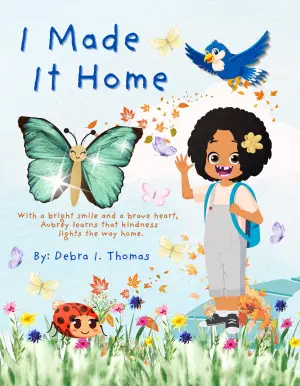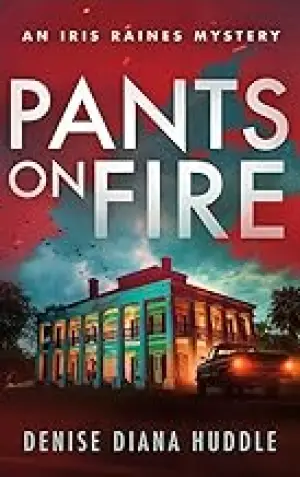Many aspiring screenwriters often struggle to produce an entire script within a deadline, leading to frustration and loss of motivation.
Script Frenzy is a writing challenge designed specifically for screenwriters to create a complete screenplay in just one month, often pushing creative boundaries in a fun and supportive way.
Table of Contents
The Origins of Script Frenzy
Script Frenzy was first launched in 2007 by the creators of National Novel Writing Month (NaNoWriMo). The goal was to replicate the excitement and fervor of NaNoWriMo for screenplay writers. It asked participants to write a 100-page script (or its equivalent) in April, providing a structured way for writers to dive into their projects, whether it be a feature film, short film, or stage play.
This event quickly gained traction, attracting screenwriters from diverse backgrounds. Applicants brought determination into a space buzzing with fresh ideas and friendly competition.
Why Participate in Script Frenzy?
Increased Motivation
Participating in Script Frenzy can ignite a powerful spark of motivation. The deadline creates a sense of urgency that encourages many writers to push through creative blocks. For example, let’s say you’re a writer who keeps drafting new outlines but never completes a script. Joining Script Frenzy could transform that habit. With daily goals and a community cheering you on, the prospect of finishing a script in just 30 days becomes more attainable.
Community Support
The camaraderie among participants adds another layer of motivation. Writers meet in online groups or local gatherings, trading thoughts and stories about scriptwriting. An individual facing trouble with dialogue can turn to others for suggestions, leading to improvements in the script.
Skill Development
Script Frenzy encourages not only the completion of a script but also the honing of screenwriting skills. While writing under pressure may seem daunting, it forces writers to think critically about pacing, character development, and dialogue. Consider Lisa, who attempted Script Frenzy for the first time; she cited that the feedback she received on her character arcs and the rush of staying within the page limit significantly improved her storytelling.
Preparing for Script Frenzy
Setting Realistic Goals
Before diving into the frenzy, it’s essential to map out a realistic goal. While the official target is a 100-page script, participants can adjust based on their comfort level and experience. A newcomer might set a goal of simply completing a 30-page short film. This approach keeps the challenge fun rather than stressful.
Developing an Outline
Preparation is key. An outline acts as a roadmap through the writing process. Create character sketches, plot points, and scene ideas ahead of writing. For instance, John, an experienced writer, spent a few days before the challenge drafting a basic 3-act structure for his screenplay. This foresight becomes valuable when script ideas become overwhelming.
Scheduling Time
Script Frenzy demands a commitment of time. Establishing a writing schedule in advance helps maintain daily accountability. If a writer can dedicate two hours on weekdays and four hours over the weekends, they’ll remain on track. Joe, a participant, shared that he set aside mornings exclusively for writing during April and that daily journaling helped refine his writing process.
The Writing Process During Script Frenzy
Daily Word Count Goals
Setting attainable daily word count goals can standardize progress. Aiming for 3-4 pages daily makes the monthly target manageable. For those not used to writing scripts, breaking down lengthier scenes into smaller parts can ease the pressure. Samantha set her goal at three pages, allowing for flexibility without sacrificing quality.
Embrace Imperfection
Script Frenzy goes beyond the goal of completion; it’s about embracing a rough draft mindset. Writers shouldn’t aim for perfection while drafting. Editing can come later. Tom learned this the hard way during his first Script Frenzy. He spent too much time obsessing over specific lines, ultimately delaying overall progress.
Join Writing Sprints
Participating in writing sprints—short, timed sessions dedicated to writing—can also boost productivity. Communities often host timed writing challenges during which writers can aim to complete a certain number of pages or words within a set time. These sprints encourage connection while bringing back momentum during moments of low motivation.
Unique Challenges During Script Frenzy
Time Management Issues
Balancing everyday life with creative goals is a common struggle. Full-time jobs, family commitments, and social obligations can easily interfere with writing progress. A successful strategy involves prioritizing writing sessions as you would any crucial meeting. Amy, a busy mom, found success by waking up an hour earlier each day, allowing her undisturbed time to focus on her script.
Writer’s Block
Experiencing writer’s block is almost a rite of passage during script writing. Jump to a new scene or character to push the work forward. Engaging in brainstorming or even physical exercise can stimulate new ideas. Alex always keeps a notepad handy; if inspiration strikes, he can quickly jot down ideas to expand when he returns to writing.
Feedback Overload
While feedback is critical for growth, too much input can lead to confusion for the person. It’s vital to choose trusted peers for feedback and to set definitive points in the writing process to seek opinions rather than continuously seeking validation. Sarah turned to a small group of writers after completing half of her script, finding that selective critiques led to clarity without overwhelming her.
Post-Script Frenzy Actions
Celebrating Milestones
Regardless of the outcome, celebrating small wins—such as completing the first act, getting feedback, or simply writing every day—helps maintain excitement and motivation. For example, Mary ordered a special dinner to mark the end of her script submission. She honored the accomplishment and took time to appreciate her effort.
Revisiting and Revising
After the frenzy, it’s essential to set the script aside for a brief period before revising. Taking a break makes it easier to spot missed errors. Brian, a veteran of Script Frenzy, suggests letting a script rest for at least two weeks before diving into edits.
Sharing Work with the Community
Once the chaos of Script Frenzy ends, sharing the completed work with others is not only gratifying but can lead to incredible networking opportunities. Many participants submit their finished screenplays to festivals or workshops, paving the way to further development and promotion.
Additional Information
Script Frenzy may not be as famous as NaNoWriMo, but it has its own special quirks and tips that can give writers an edge.
- The Importance of Structure: Many participants focus on cranking out pages, but screenplays adhere to a stricter structure than novels. Knowing the three-act structure can save you rewriting time later on.
- Script Formats Matter: Screenplays follow a specific format, and using proper screenwriting software like Final Draft or Celtx can help you meet industry standards. It also saves you from endless formatting headaches.
- Community Resources: Many local writing groups or online forums offer support during Script Frenzy. Engaging with these communities can provide valuable feedback and motivation.
- The 100-Page Limit: Unlike novel writing challenges, Script Frenzy sets a target of 100 pages. This approach is a unique rule that encourages writers to think more about pacing and dialogue.
- Script Frenzy’s Flexibility: The challenge does not strictly require original material. You can adapt existing stories, but they recommend it only for personal projects and not for commercial use.
- You Can Start Early: If you can’t wait for April, you can begin brainstorming and outlining beforehand. Getting a head start will make the process smoother once the challenge kicks off.
- Feedback Loops: Utilize peer reviews after the project to improve your script. Constructive criticism from fellow writers can help refine your storytelling skills.
- The Networking Opportunity: Many participants form lasting connections during Script Frenzy, which can lead to collaborations on future projects or even professional opportunities.
- Embrace the Rewrite: The first draft is just a starting point. Many successful screenwriters believe that rewriting is where the magic happens.
- Flex Your Creative Muscles: While it’s a challenge, you can still allow yourself to explore different genres. Experimenting can lead to unexpected and exciting results.
Frequently Asked Questions (FAQs) Related to Script Frenzy
Q. What is Script Frenzy?
A. Script Frenzy was an annual writing challenge initiated by the NaNoWriMo organization, encouraging participants to write a complete screenplay in April.
Q. How many pages should I aim for during Script Frenzy?
A. The goal was to write a minimum of 100 pages during April, focusing on any type of script, including film, theater, or television.
Q. Can I start my script before April begins?
A. No, participants were encouraged to begin writing on April 1st and to complete their scripts by April 30th.
Q. Is there a specific format I need to follow for my screenplay?
A. Yes, scripts typically follow a standard format, which includes specific headings, scene descriptions, and dialogue layout. There are software options such as Final Draft and Celtx that can help.
Q. What if I don’t finish 100 pages in April?
A. That’s okay! The challenge aims to inspire writers. Finishing is fantastic, but the experience and progress are what really count.
Q. Are there any prizes or awards for completing the challenge?
A. Script Frenzy did not have official prizes. However, participants often celebrated their achievements through personal satisfaction, the joy of writing, and camaraderie with fellow writers.
Q. Can I collaborate with someone else on my script during Script Frenzy?
A. Absolutely! Collaborating can be a fun way to merge creative ideas and tackle the challenge together.
Q. Are there any forums or communities for Script Frenzy participants?
A. Yes! Many writers would participate in online forums and social media groups to share progress, tips, and encouragement throughout the month.
Q. Can I write a script for a genre outside of film, like a video game?
A. Yes! While many participants focused on traditional screenplays, you were free to write in any format, including video game scripts, podcasts, or even web series.
Q. Is Script Frenzy still being held every year?
A. Script Frenzy officially ended in 2013, but many writers continue to take on similar challenges independently or through local events.
Conclusion
Script Frenzy offers a unique chance for writers to explore the world of screenwriting with enthusiasm and support. By dedicating just a month to this creative challenge, you can sharpen your skills, connect with other writers, and bring your story to life. Whether you’re a seasoned pro or a beginner, participating can transform your approach to storytelling. So, gather your ideas, set your goals, and get ready to unleash your creativity—because who knows? Your screenplay could be the next big hit!







